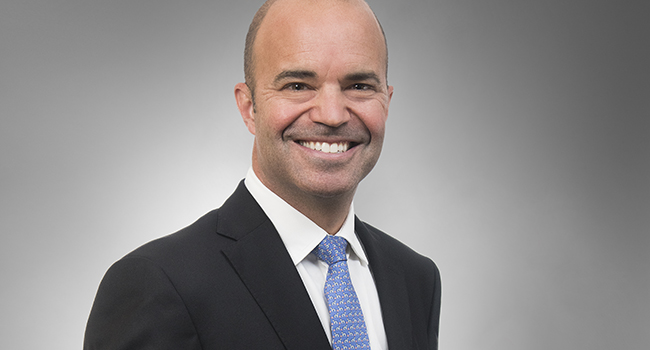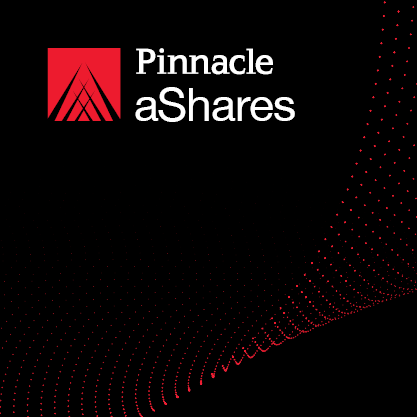Much as supermarkets sell bread at a loss in a bid to lure customers, Pinnacle Investment, an Aussie active ETF provider, is listing a cash ETF with zero fees. The Pinnacle aShares Dynamic Cash Fund Managed Fund (Z3RO), which began trading on the ASX this week, will act as a gateway drug to the company's other higher margin funds. We spoke to Chris Meyer, boss of Pinnacle, to learn more.
ETF Stream: A zero fee ETF is obviously very cheap. What’s the motivation for bringing such a cheap product to market?
Chris Meyer: Investors aren’t getting a good deal on their cash. High fees and low interest is pervasive in the industry across bank accounts, managed funds and platforms. Cash is the foundation of all investing. We want to introduce investors to Pinnacle aShares through Z3RO, a cash ETF and then take them with us on a journey through our other listed investment offerings. We will be losing money on Z3RO, a conscious move. A loss leader of sorts.
The product disclosure statement for Z3RO says: “We have the right to increase the fees or to charge fees not currently levied… without your consent.” Am I right in thinking fees will be raised at some point? They’ll have to be to recover listing costs and other cash burn won’t they?
We won’t charge a management fee on Z3RO but investors should be aware that the fund does have the right to pass on certain recoverable expenses like ASX, registry and custodian costs. These will be capped at 0.15% when the fund is small and will reduce as the fund grows in size.
Management Fees (% p.a.)Recoverable Expenses (% p.a.)Indirect CostsBetaShares Australian High Interest Cash ETF (AAA)0.1800iShares Core Cash ETF (BILL)0.0700Pinnacle aShares Dynamic Cash Fund Managed Fund (Z3RO)00.15*0*Capped, will decline as the fund's assets grow
What is the market making arrangement for Z3RO and how do you ensure tight spreads and pricing at NAV?
We don’t charge our market maker or other authorised participants to issue them Z3RO ETFs. That means they really should be quoting a tight spread around the NAV which we publish, alongside the portfolio holdings every day on our website.
What are the differences between Z3RO and competitor cash ETFs (besides pricing)?
Z3RO is actively managed and therefore is actively trying to beat the RBA cash rate through a portfolio of Bank Bills and Commercial Paper. Many of the cash ETFs are passive. Z3RO also fully discloses its portfolio holdings daily despite being an active ETF, whereas some of the other ASX listed active cash ETFs don’t provide portfolio holdings transparency daily, making it difficult for investors to understand exactly what is in the ETF portfolio.
Cash ETFs are a very Australian thing. Do you know why they’re so popular here?
I’m not sure. I was in Canada in February this year meeting with a bunch of ETF issuers and many of them were running very large and successful high cash ETFs. Evolve and Purpose are examples of this. Perhaps they’re more popular with retail investors in markets where the all-in costs of keeping money in cash is high either because of lower yields on cash balances or high transaction fees, making a cash ETF a viable alternative. That certainly seems to be the case in the Australian market.
As rates have come down globally, we think investors should be more pro-active about their cash holdings. If they don’t, cash can actually be a negative real returning asset, meaning your capital is actually worth less in the future than it is today. Of course, this is harder to do in markets like Europe where interest rates are negative on cash balances.
[Editor's note: the Toronto-listed Purpose High Interest Savings ETF (PSA:CN), contains C$1.9 billion under management, of which $1.3B arrived in 2019, data from the Canadian ETF Association indicates.]
Some investors use term deposits rather than cash ETFs because they don’t want to pay to get in and out. What would you say to those averse to cash ETFs for this reason?
Term deposits are a viable option for cash investments but they often have lockup periods whereas ETFs have intraday liquidity. Last I checked, the forms to fill out to take out a term deposit were also a bit of a mission. With ETFs it’s the click of a few buttons to buy the ETF.
Cash ETF spreads are pretty tight. When I look at cash managed fund or platform cash accounts, there are a lot of fees that can add up as well like the spread on the managed fund or the annual platform fee on all customer balances, including cash. With bank deposit fees, while I may not have any account fees on my bank savings account, I am charged to withdraw cash from an ATM. When looking at it this way, I don’t think the costs of trading in cash ETFs is any higher than many other cash alternatives out there and offer higher interest rates and more flexibility. The key for investors is to make sure the after fees interest income they are earning on their cash is as good as they can get for the flexibility they want in their ability to access the cash if they need it.
Thank you for this interview.



